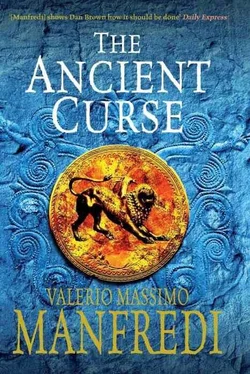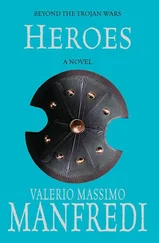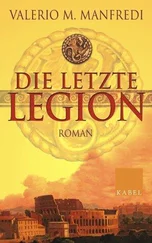‘It’s impossible that a building of this size has no owner and that that owner never comes by,’ commented Fabrizio.
‘Wait,’ said Francesca. ‘I have an idea. My laptop’s in the car and I’m practically sure I’ve downloaded the local land registry map. I just hope there’s enough power left. You stay here. I’ll be right back. Don’t move!’
Before Fabrizio could stop her, the girl had already dashed across the little square in front of the palazzo and had disappeared behind the corner and down the street. He found himself alone. All he could do was strain his ears to try to make out any growling in the silence of the night. Instead he heard the whir of helicopter blades and saw a spotlight scanning the terrain to the south-west. Reggiani must have heard the howl himself and sent out his scouts. Fabrizio wondered whether he might not give the go-ahead for the operation sooner than he’d promised. On the one hand, that wasn’t such a bad idea. If Angelo was still wandering through the countryside or if he’d found himself an unsafe shelter, say in a stable or sheep’s pen somewhere, maybe the carabinieri would get to him before the thing did.
Francesca was back in no time with her big leather bag. She sat on the kerb, pulled out her laptop, set it on her knees and switched it on. She opened the land registry file and soon zoomed in on the Caretti-Riccardi palace.
‘Here it is,’ she said, beginning to enlarge the grid. ‘Let’s see-’
‘Listen,’ Fabrizio interrupted her, ‘Signora Pina, the lady who owns the trattoria, told me that more than once, after dark, she’s seen light from down below, from the basement of the palazzo. If she’s right, that means that there are cellars down there and maybe an air shaft that connects them with the outside. That’s a pretty common feature in these ancient buildings.’
‘You’re right about that. And it might even be that illegal immigrants have found a way to get down there and are using it as a shelter. A lot of old, abandoned buildings are occupied. OK, here you go. The property belongs, or rather belonged, to Jacopo Ghirardini, a Volterra nobleman who hasn’t been seen or heard of in the last five years. Current whereabouts unknown. Apparently no heirs have come forward to make a claim.’
‘Five years ago,’ murmured Fabrizio. ‘Five years ago is when that woman suddenly showed up here, and Reggiani told me she had been working as a housekeeper in Volterra… Here, maybe?’ He vaguely remembered Signora Pina mentioning something of the sort that first time he’d eaten at the trattoria.
‘Seems strange to me. I’ve always seen it closed up. But I can try to find out. Someone must have lived here at one time. Here, see, take a look at this. This rectangle on the edge of the outside wall is certainly an air vent for the basement.’
‘It’ll be bricked up like the windows,’ mused Fabrizio. ‘Or closed by a grating.’
‘We’ll never know unless we go and look. Here, according to the map it’s on the right wall when you’re facing the facade, along Via Cantergiani.’ She closed the file, turned off the computer and slipped it back into her bag. ‘Shall we go?’ she said, getting to her feet and walking towards the right side of the building.
Fabrizio followed her and together they began to search the solid, windowless ground floor. The long limestone wall was braced every five or six metres by vertical ribbing. Just behind one of these protrusions, they found the air shaft. Its heavy iron lid had been removed and it lay vertically on the wall, secured by a rusty ring. The shaft was closed by a grating of heavy iron bars that looked like it hadn’t been moved in some time. Fabrizio tried to lift it but it wouldn’t give a centimetre.
‘I was afraid of this. It’s sealed into the foundation.’
Francesca knelt to take a look. ‘That seems strange to me. Usually these openings were also used for lowering barrels of wine into the cellars, or other foodstuffs that needed to be kept cool. Or anything they wanted to hide… Thank God there’s no one around,’ she added, sticking her hand in the grating. ‘If anyone saw us, Lord knows what they’d think.’
‘Especially if that someone was Signora Pina!’ said Fabrizio. ‘Fortunately, it looks like she’s closed tonight. I can’t see any lights on in the restaurant.’
‘Now that you mention it, you don’t have a torch, do you?’ asked Francesca.
Fabrizio rummaged through his backpack, found a torch and shone it at the grating and the edges of the hole, but the beam went straight down to the cellar floor.
‘Hey, look at that!’ he said.
Francesca peered at the muddy floor. ‘Footprints…’
‘Little ones, I’d say. It’s Angelo, I’m sure of it.’
‘So how did he get in?’
‘Through the bars.’
‘That’s impossible.’
‘He’s small and skinny, I’m telling you.’
Francesca shook her head incredulously and continued to feel around under the grating.
‘Found it!’ she exclaimed suddenly. ‘There’s a chain.’
She unhooked it and Fabrizio was able to raise the grating.
‘I’m going first,’ said Francesca, and let herself drop down to the floor. Fabrizio heard her swearing and shone the torch on her. She had slipped when her feet touched the ground and she was sitting in the mud. She got up and cleaned herself off as best she could, then looked up at Fabrizio. ‘Pass me my bag with the computer. Drop it. Don’t worry, I’ll catch it.’
Fabrizio dangled the bag as low as possible, then called out to her and let it go.
‘Got it,’ rang out Francesca’s voice underground.
Fabrizio lowered himself down as well and the two of them looked at each other without speaking for long instants in the dim light raining down from the street.
‘Let’s hope no one falls in,’ said Francesca. ‘Leaving the grating open turns this into a real trap. If someone stumbles over it, they’ll kill themselves.’
‘Who do you think is roaming the streets at this hour of the night? You saw for yourself. There’s not a living soul out there.’
‘Well, I’d also like to know how we’re going to get out.’
‘We’ll worry about that when the time comes. We could go through the front door – the place looks like it could use some airing out.’
Fabrizio was trying to make light of a fairly grim situation. The air was heavy in the intense darkness of the underground chamber and there was a strong musty odour. He pointed the torch at the walls and ceiling to get an idea of the dimensions and characteristics of the room and found another wall that crossed it from one end to the other, interrupted by a couple of round arched doorways made of big hewn tufa stones oozing dampness and covered with grey mould.
‘Definitely ancient,’ observed Francesca.
‘Etruscan,’ concluded Fabrizio, shining the ray of light from one end to another. He swept the beam across the floor to light up the line of small footprints leading away from them under the arch.
Francesca took out her laptop and turned it on. ‘These cellar rooms may even be included on the map,’ she said. ‘The registry date is old enough. It goes back to the age of the Leopoldo dukes, if I’m not mistaken. OK, look at this… See… This is the wall with the arches, right? Good, we’re here… Let’s go on, this way.’
They proceeded about ten metres or so until they found themselves in front of an iron railing which flanked a ramp of stairs leading downward.
‘Is this on your map?’ asked Fabrizio, peering at the screen.
‘No,’ said Francesca, ‘it’s not. At least, I don’t think it is.’
They descended seven grey stone steps until they found themselves in a completely empty room whose walls still displayed traces of colour and peeling plaster. At the corner opposite the bottom of the stairs was a sloping ramp. They continued down despite the fact that they could no longer make out any footprints on the stone slabs. There was no way of telling whether Angelo – if the prints they’d seen had truly been his – had continued in this direction.
Читать дальше












